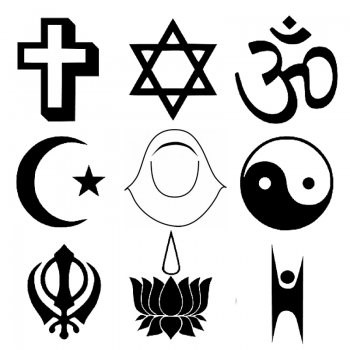Is Religious Conversion Becoming Common in India?

India, being the most diverse tolerant nation in terms of religious beliefs and practices, has given birth to some major religions as- Hinduism, Jainism, Buddhism, and Sikhism. Living within such diversity, tolerance becomes an essential attribute for society. The absence of tolerance and foisting one’s religious views sometimes lead to religious conversion.

Going back to history, it is quite evident that for ages there was only one religion prevalent in India, Hinduism. Later, with the arrival of foreign invaders and rulers, different religions became known to people. Initially, they might not have created a significant impact on people’s beliefs but gradually the idea of knowing or achieving divine compassion had influenced the simple and gullible minds of Indians, especially the lower castes of Indian society. History depicts the appalling stories of the conversion of innumerable Hindus into Islam out of fear during the Mughal regime and partition. Not only the fear factor but there are also many other reasons why people convert into a different religion:
- Due to change in religious beliefs
- Getting married in different religion
- Convenience- money, land, or other
- Conversion due to fear for life
- Being forced to convert
It has been observed in recent years that conversion has become a sensitive issue in society, The conversion of people belonging to the lower castes of Hinduism to a proselytizing religion such as Christianity and Muslim is becoming a contentious issue in political corridors. As the result, nine states have imposed or are in the process to impose laws against proselytize:
Odisha was the first Indian State to impose an anti-conversion law against forced conversion, the ‘Orissa Freedom of Religion Act in 1967, but in 1973, the High Court of Odisha dismissed the Act. Later, in 1977, the Act was reinstated by the Supreme Court. Madhya Pradesh, the second State to pass the legislation- Freedom of Religion Act, 1968 which was replaced by the Madhya Pradesh Freedom of Religion Act 2020 with certain amendments. After the division of Madhya Pradesh, Chhattisgarh also implemented the same law under the name of Chhattisgarh Freedom of Religion Act 1968.

Gujrat passed the Freedom of Religion Act in 2003 which, later was amended by the BJP State government in 2006 with stricter rules against deceptive ways of conversion. In Himachal Pradesh anti-conversion rule was passed in 2007, later in 2019, The Freedom of Religion Bill came with stricter laws against unlawful conversion. Uttarakhand has also enacted the Freedom of Religion Act in 2018. Arunachal Pradesh and Rajasthan have also included anti-conversion laws similar to Odisha and Madhya Pradesh but still, need rules to set to implement the law. In Uttar Pradesh, the Prohibition of Unlawful Conversion of Religion Ordinance, 2020 has been enacted.
Karnataka is yet to enact an anti-conversion bill after the approval of the Karnataka Legislative Council. However, it is facing challenges as critics think that it will target religious minorities and interfaith couples. The opposition party promises to abolish the law if comes into power. People may have a difference of opinions but we must not forget the cases of unlawful conversion under ‘love Jihad’ and the scary history of forced religious conversion. The idea of enacting anti-conversion law needs to be implemented throughout the country.